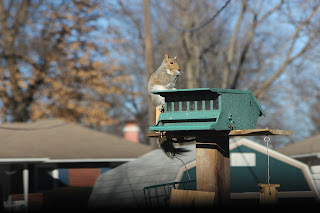I don’t remember when or what it was about but something, someone got my attention with the idea, ‘Choose your battles.’ It didn’t need a lot of explanation. Any time your are at odds with someone the potential for conflict is ripe. It could be a couple of two-year olds, over a cookie crumb or it could be CEO’s over who cheated first. Battles can be over someone’s honor or about a righteous principle and those kinds of conflicts usually end badly, for everyone. Even if you win, it comes at a price. Sun Tzu was a Chinese general turned philosopher around 500 B.C. He was a real kick-ass kind of guy, fought great wars and won, all the time. In his old age he wrote a book about what he had learned. His book, ‘The Art of War’ is required reading in every military school in the world. He made the point about choosing your battles. You pick the time and place, not the other way. If it doesn’t suit you, wait until it does. Don’t fight on other people’s terms. Retreat is preferable to unwinnable battles. Sun Tzu made it clear that a successful war is not about winning, it’s about not losing. Two points in his book that I remember well are; A general’s greatest victory is the battle he never had to fight. Then he said, A well placed spy is more valuable than a legion of warriors. Chose your battles and know your enemy.
I’ve got one of those ‘Principle’ things that goes back, way back. I’ve always liked if not loved birds. If I can’t be me I’d rather be a humming bird or a tern; none of those hairy mammals for me. So I put food out for my feathered friends, especially in winter. There is a wonderful variety of bird species in my neighborhood who come to my feeder daily. I watch them from my kitchen window and it’s awesome how they take turns, everybody gets fed. But there are tree rats in my neighborhood as well. A few years ago, maybe five or six, there were so many gray squirrels on my bird feeder, the birds were shut out and I didn’t like that. The squirrels took turns; there was one on the feeder every time I looked and we were going through sunflower seeds like a drunk sailor and his money. I wasn’t going take that lying down. We went to war. I don’t think the squirrels understood but I did. I engineered obstacles to keep the squirrels at bay but they always found a way to negotiate my defense and get to the seeds. I got an air/pellet pistol and tried to shoot them from the kitchen window but inaccuracy was a problem and they learned to get behind the feeder when I was at the window. All in all, I was rendered useless by a bunch of squirrels. Me, the human, with a truly miraculous brain made foolish by rodents whose brain is about the size of a walnut half. I knew better before I began but it was a pride thing and I couldn’t help myself.
Then, for a couple of years there were no squirrels. A virus came through and killed them all. But nature abhors a vacuum and slowly, foreign, resistant squirrels began to arrive, like pilgrims and pioneers of days gone bye. So far there are only two of those hairy devils coming to my back yard. I’ve decided to chose my battles and this is one I’ll let go for now. I have a supposedly, squirrel proof feeder with a spring loaded perch. If a really big bird or squirrel puts weight on the perch it drops and closes access to the food. Still, they figured a way to cling with hind feet to the side of the feeder, put just enough weight on the perch to steady themselves, without completely closing it. If I push the sunflower seeds to the middle of the feeder, the squirrels find it most difficult to reach them and that’s about as good as I can hope for. When our Hunter-Gatherer ancestors were foraging for food, they ranged as far as they could. Feeding in a limited area would have been a fatal mistake. Even if food were plentiful most of the time, food would be scarce others. Humans could survive without food for a while but not so birds and squirrels. Their next meal and drink is their bridge to tomorrow. So birds and even varmints can’t spend too much time at one feeding place. They are required by their nature to move along and keep finding new, different sources of food.
I made a peanut feeder from wood and heavy, hardware cloth (Screen) that is just right for woodpecker beaks but not a squirrel’s nose. They can get their tongues against the peanut but not their teeth; haven’t seen them on the peanut feeder or the suet cage. I know they will eat suet if it’s easy but the suet cage gives them the same problem as the peanut feeder. All I’ve done is what I can do to make it time and energy expensive for the tree rats. They munch for a while but it’s not an all-you-can-eat buffet. They move on and the birds come back. It’s about all I can do without raising the stakes. So I’ll be satisfied; this is a battle I don’t need to win, neither do I want to lose. But should things change, I have another plan.







